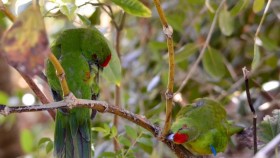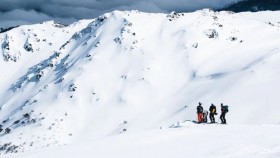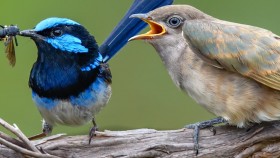Jochen Zeil
the tiniest insect is ... more computationally smart and a more competent actor in complex natural environments than anything we can presently build
Ecological Neuroscience Group
Research Focus
We are interested in understanding the information processing challenges animals face under natural, evolution-relevant conditions. At the moment we concentrate in particular on insect navigation: what cues do animals use to remember places and to be able to navigate between them? How do they acquire navigational competence? What is the sensory ecology of navigation and how do navigational strategies depend on habitat structure? We have developed the concepts and tools to quantify navigational information under natural conditions, to map navigational information in different habitats and to track the movements of walking and flying animals with high precision. Trevor Murray builds 3D models of navigation environments and renders panoramic views from the perspective of navigating ants and wasps. Zoltán Kócsi’s antarium, a 20000 UV/Green/Blue LED virtual reality arena has recently been assembled and will allow us to dynamically project an ant’s environment as she walks through it on a trackball. Even the tiniest ants are able to navigate and Fiorella Ramierez-Esquivel investigates how miniaturization affects the sensory arrays of ants, their antennae and their eyes, which are crucial for communication and navigation.
What do you see as challenges for your field of research?
The most provocative one is the fact that even the tiniest insect is more flexible, more robust, more autonomous, more energy efficient, more computationally smart and a more competent actor in complex natural environments than anything we can presently build. So what makes insects such competent and autonomous agents in the world, in terms of sensing, information processing and decision making? Within biological science more specifically, the challenges are two-fold. Firstly, to convince neuroscientists that it is crucial to understand the design and function of brains in their natural habitat, that is in freely moving bodies and in the natural environments in which they have evolved. Secondly, to convince behavioural ecologists that all selective pressures have to work their way through developmental, genetic, epigenetic and neural networks and that it is therefore crucial to understand how these processes work and what the constraints are that are operating on these levels of biological organization.
What do you like most about research?
The friendships in a global community of kindred spirits, the huge aesthetic and intellectual enjoyment of watching an animal doing its stuff and the rare moments when I feel that I have understood something.
- This profile first appeared in the RSB newsletter, Issue 85, April 2017.
- Zeil group - Ecological neuroscience








